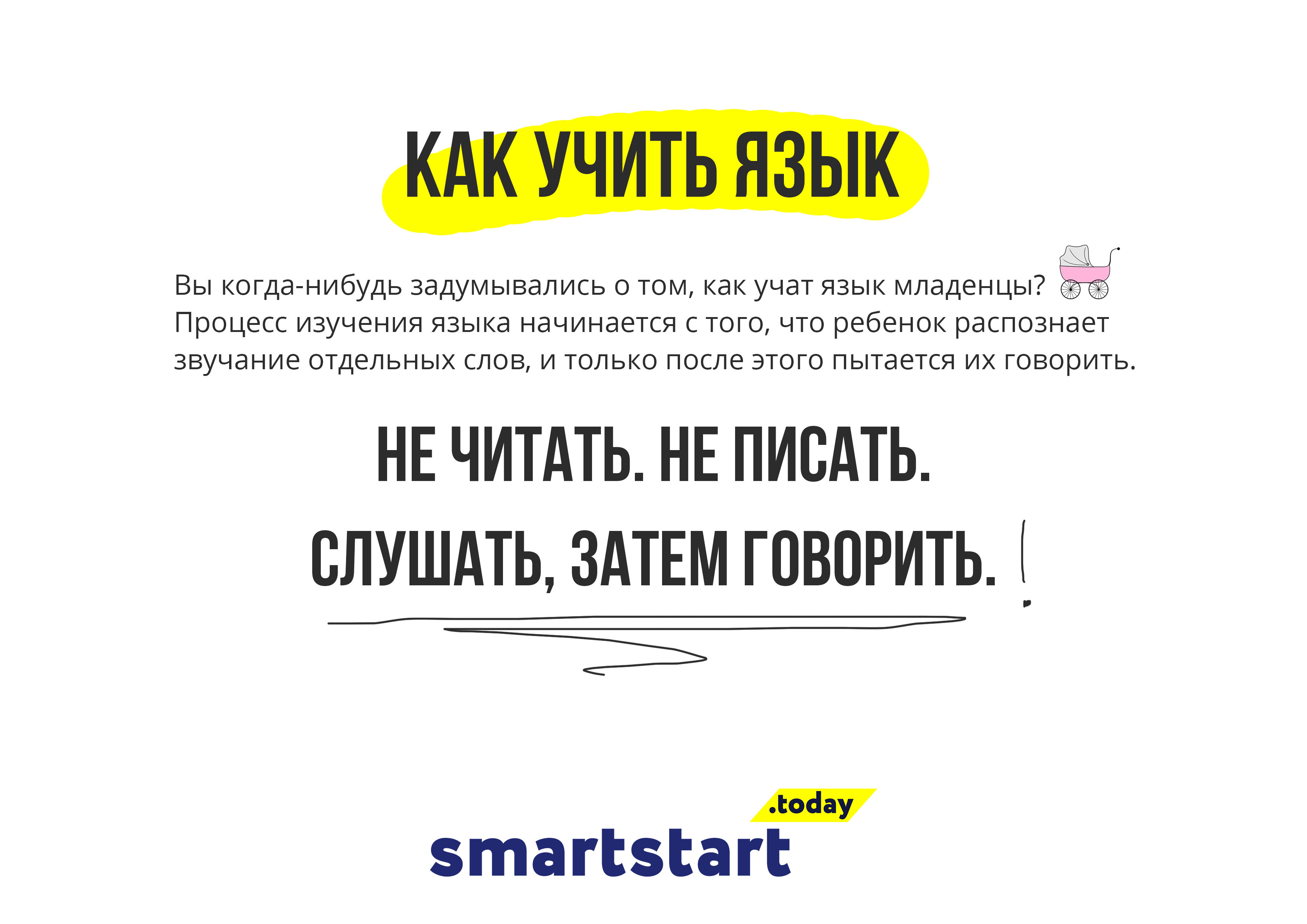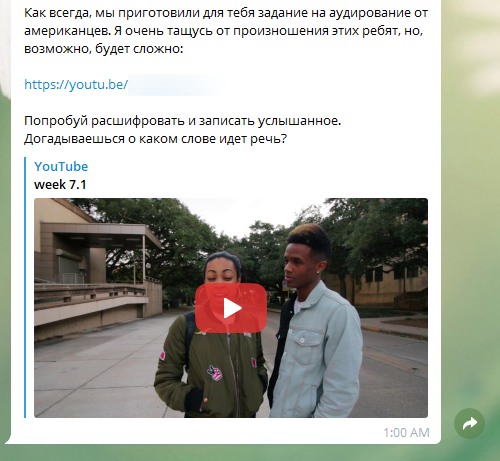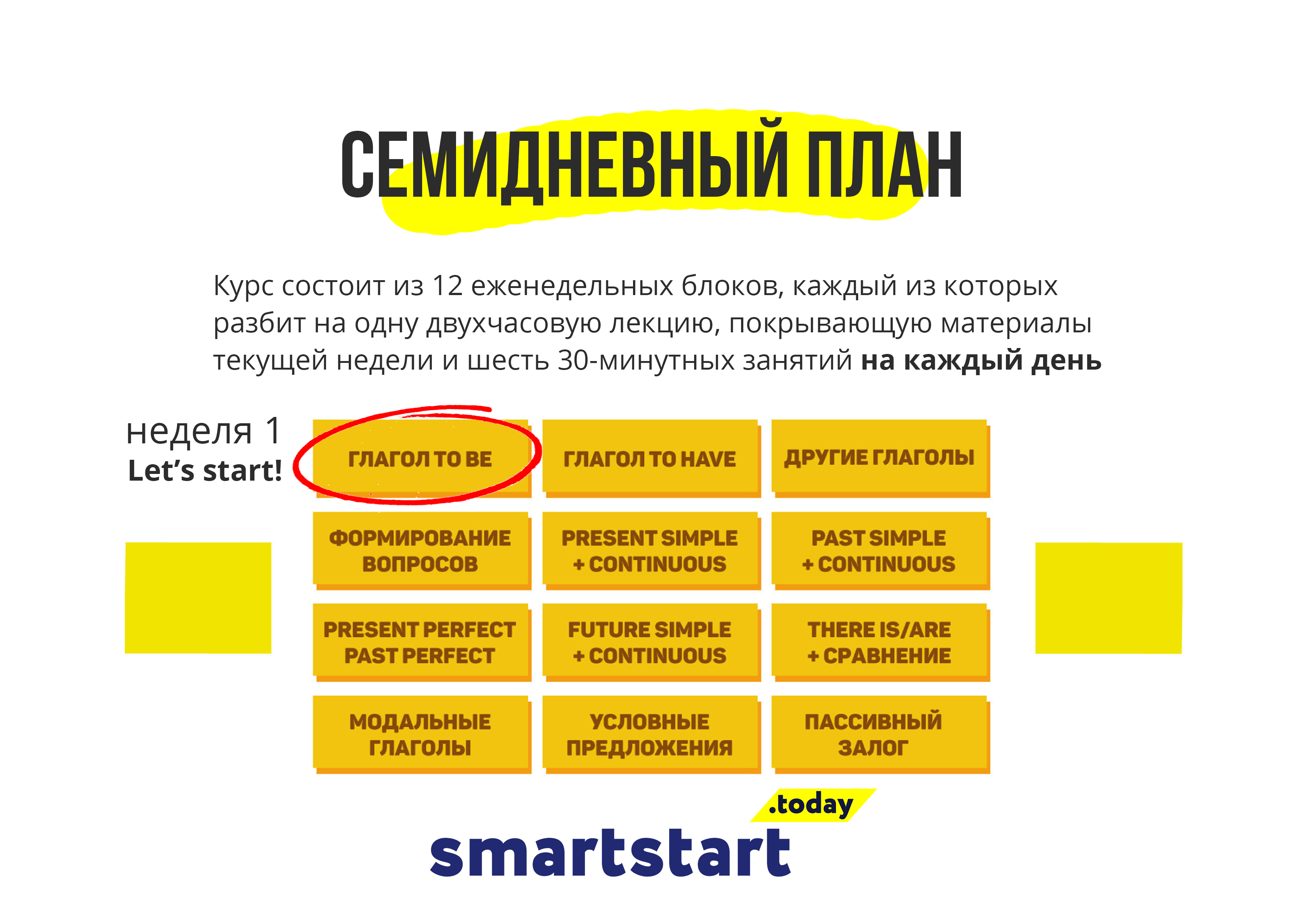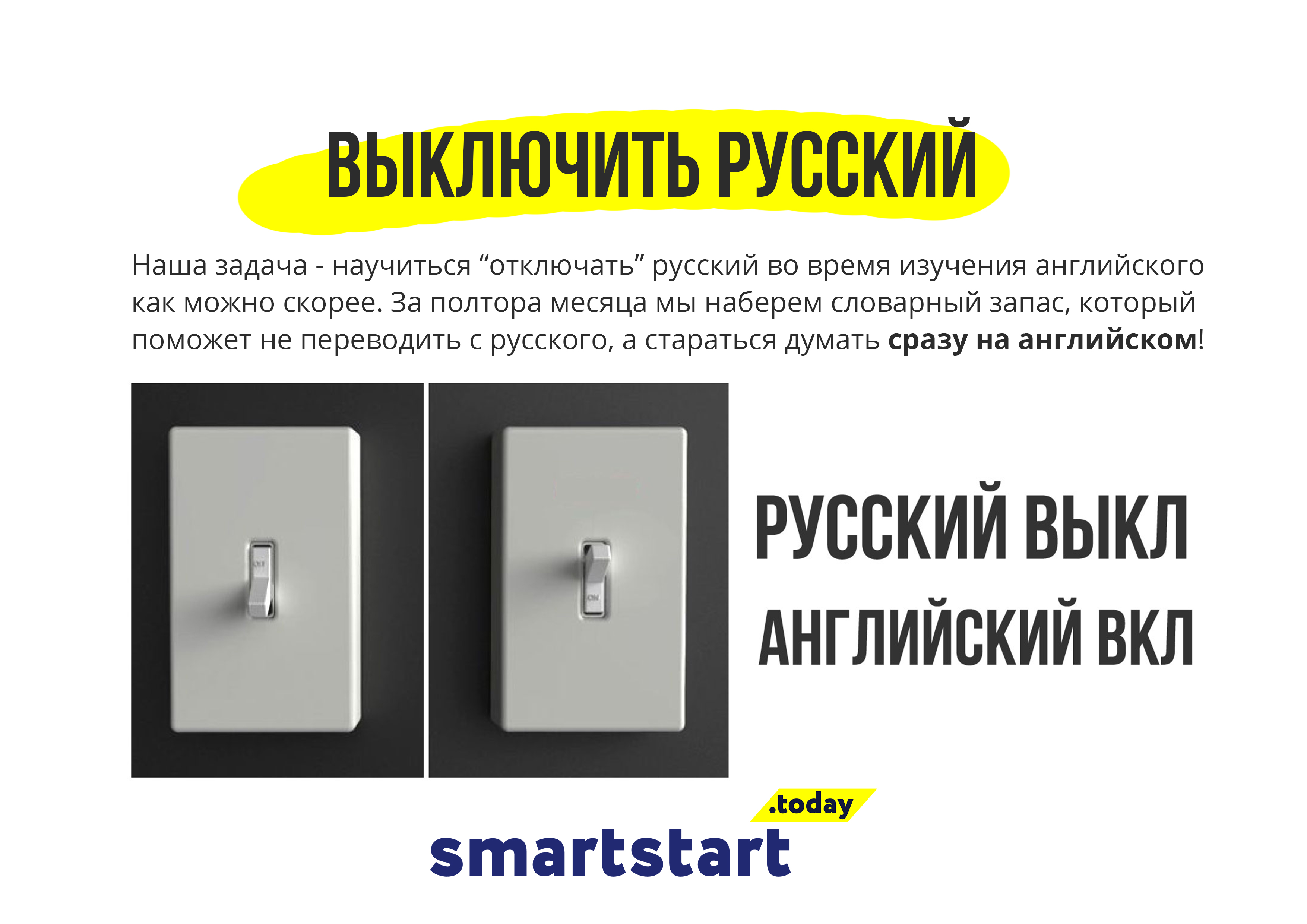AI, Machine Learning, Big Data, Speech Recognition and other words that will NOT help you learn English
It is foolish to deny that the presence of such words in the description of the project positively affects the receipt of investments. The founders of one well-known company on the Russian market even admitted that they had to lie a little and mention this magic formula in order to receive money from a domestic fund.
Machine learning, ..., Big Date are cool words that ruthlessly used by marketers in their aggressive “pitches”, but have a negligible impact on the final result.
Under the cut, I will share the simplest technique that will help any IT person speak English as soon as possible. Without “fancy” words, aggressive marketing tactics and intrusive advertising.

My name is Denis Maximov, and English completely changed my life. Yes, I remember that I promised to do without marketing tactics, but this is not an unfounded statement.
On October 31, 2014, I wrote an article on how to become a Fulbright fellowship student and go to graduate school in the United States. She had little to do with IT, but helped to get the long-awaited invite to Habr =)
During these 5 years, I managed to graduate from the university, work with a bunch of interesting people, immigrate to America and finalize with my friends a startup to learn English.
But in order not to fall into the trap of lyrical digression, let me go straight to the point. In this article I will share a simple and understandable technique that will help you radically speed up the process of learning any language.
We will need two key ingredients: having motivation and 30 free minutes per day .
That's it! These two factors will help you easily implement the mechanics below and finally speak English.
I’ll clarify right away: watching movies in the original / reading books and foreign sites is a very weak motivation for learning a language. It's cool to watch movies in the original. But there is no real need to learn a language with such a statement of the problem.
Such a goal can be complementary, but certainly not the main one. That is why most children with similar goals will never speak a foreign language.
Promotion, free education abroad, work in a foreign company, freedom of travel - is another matter entirely.
Setting an adequate goal is half the success.
The second parameter is also clear. Everyone always talks about him, but practically NEVER put them into practice.

Daily small classes are much more effective than two hours, which happen twice a week.
You can study programming in courses, but if all practice remains only in courses, you will have to study for a long time, right? So with English.
That is why I am deeply convinced that independent language learning is almost always more effective than tutors and courses. But here there is one problem: in order to be able to learn the language yourself, it is imperative that you have a good methodology that can provide an integrated approach.
It is about her that we will talk below.

Babies do not begin to learn a language with grammar (although it is insanely important, but more on that below).
They have been listening to mom and dad for a long time. Then their brain begins to recognize and respond to individual words, and only then - it tries to reproduce what they hear.
How to implement this intuitive approach in life? - Easily! You just need to start listening. At least 10 minutes a day.

Every morning, our students receive a daily video from the Americans. This is a short 10-20 second video where carriers explain different phrases. The student's task is to try to record as much as possible what he heard, even if he had never studied English before.
After 10 hours, a hint comes along with a part of the filled in gaps so that the student can refine his version and compare the “before” and “after” hints.
Each video contains a complete thought and is short enough to be conveniently rewound two thousand times. In my opinion, such videos are much more effective than long stories, especially at first.
Find any platform with interesting for you video.
TED / Youtube / Euronews, etc., etc. It is very important to be able to view the “text” of the video. But it is worth doing it ONLY after when you have spent quite a long time on recording what you heard.
Please note: It does not matter if you are able to UNDERSTAND what you have heard. It is important that you are able to hear?
AND DO NOT SEE SUBTITLE MOVIES! So you do not listen with your ears, but read with your eyes. Too lazy to explain, just believe.
And no, I won’t argue for myself. Listening is really a key skill, but since we are not babies, you can go the short way and spend three months pumping grammar. With active training in listening skills.

If your level of knowledge is lower than upper-intermediate, I would follow a similar sequence (read from left to right).
This will seem strange, but the vast majority of errors arise due to ignorance of the features of use:
If you are well versed in these bases, the study of any “obscure time” will turn into a formality. Often people come to us who can easily translate a super-complex sentence, but make 5 mistakes in the simplest.
In my opinion, these are the FOUR main whales on which the English grammar is based. That is why we devote a lot of time to them at the initial stage of training.
Buy (don’t download, namely buy) a good grammar textbook. English Grammar in Use by Raymond Murphy is a great option for all occasions. Do not skip from topic to topic, but focus on the quality of each block. The sequence from the screen above is an excellent “route” for a quick start.
If the topic is new, I would advise spending at least a week on it. When you practice alone, it is important to understand all the nuances and bring understanding to automatism.
Important: knowledge of grammar makes it possible to overcome uncertainty during a conversation.
When, instead of thinking about HOW to say the sentence, you think about the meaning of what was said (provided that the grammar is “tied up” automatically) - you are much more pleasant to listen to!
From here we go to point 3:

My teacher once gave me invaluable advice. He asked me to imagine that there are two switches in my head: Ru and Eng.
Try to turn off the “Russian” switch during class. The faster you learn to do this, the better.
I did not expect to go through the Fulbright interview the first time. But it turned out, however, a moment of joy quickly gave way to anxiety. To fulfill the dream and go to study in the States, it remains to pass the GRE. And there are VERY many terrible words that the average American does not know.
Helped out the good old cards in conjunction with memrise.com .
Below is an example of my option. The only difference is the lack of a Russian translation, because see point 3.

With words, everything is simple:
Take an unfamiliar word. We go to dictionary.com to find an interpretation in English and write it on the back side, along with an example of use, which we invent independently.
Add synonyms / antonyms from www.thesaurus.com to the front. It is desirable those who do not yet know. Thanks to this, a whole "network" is formed and one card helps to remember several words at once.
After that, add the word to your personal course on the aforementioned memrase, install the application and combine its use with good old paper cards, which are always in your pocket / backpack.
With this approach, it takes about 5 minutes to create a card. It's long and boring, but we want to remember these words for a long time, right?
You can use only the application, but the combination with the good old cards is MUCH more effective. And they did without any “machine learning”.
Regarding word lists
Everything here is very individual, and depends on your level.
Beginners recommend checking out Ogden's list at ogden.basic-english.org
This is a good block of words that will cover priority needs.
Advanced I highly recommend Verbal Advantage by Charles Harrington . Very cool thing.
An interesting fact: the most difficult task in the development of our course was the selection of relevant words for each grammatical block. But now our students can learn vocabulary much faster due to the fact that it is smoothly introduced into daily classes.
Pronunciation is important. BUT EXACTLY no more important than knowledge of grammar, vocabulary and good listening. It is much better to speak correctly, but with an emphasis, than to use incoherent things in one sentence.
With high probability, you can never sound like a carrier. The good news is that you don’t need it. But there is great advice that will help to significantly improve speech quality:
Try to utter the whole sentence! Instead of I ... have ... an ... orange - Ihaveanorange!
If you need to think, think BETWEEN sentences, but not between the words of one sentence. Listening to such a speech is painfully painful (and this is a problem for most beginners).
And for everything else, there's a great American Accent Training by Ann Cook .
And the last: phraseological units are important. But they need to be taught gradually and very carefully. After when you have a strong base. This is an excellent system upgrade, especially if the "main unit" works without failures! Of course, nothing prevents learning interesting phrases in context. Just don't make it an end in itself!
Following these simple tips will help bring your language to a whole new level. Even with self-study.
But if you have 30 minutes a day and want to receive daily tasks from the media along with feedback and parsing errors, join our marathon: smartstart.today/english-special
___
PS We would really like to use such cool things as Machine Learning, Big Data and Speech Recognition when creating a project, but we still did not find expedient tasks.
PPS Although no, I'm lying. Englishcentral.com has very cool speech recognition. They can show in what SOUNDS you make a mistake. It’s not always accurate yet, but it’s really cool!
Machine learning, ..., Big Date are cool words that ruthlessly used by marketers in their aggressive “pitches”, but have a negligible impact on the final result.
Under the cut, I will share the simplest technique that will help any IT person speak English as soon as possible. Without “fancy” words, aggressive marketing tactics and intrusive advertising.
Getting Things Done: A Simple, Fail-Safe English Learning System

My name is Denis Maximov, and English completely changed my life. Yes, I remember that I promised to do without marketing tactics, but this is not an unfounded statement.
On October 31, 2014, I wrote an article on how to become a Fulbright fellowship student and go to graduate school in the United States. She had little to do with IT, but helped to get the long-awaited invite to Habr =)
During these 5 years, I managed to graduate from the university, work with a bunch of interesting people, immigrate to America and finalize with my friends a startup to learn English.
But in order not to fall into the trap of lyrical digression, let me go straight to the point. In this article I will share a simple and understandable technique that will help you radically speed up the process of learning any language.
Write down the recipe!
We will need two key ingredients: having motivation and 30 free minutes per day .
That's it! These two factors will help you easily implement the mechanics below and finally speak English.
I’ll clarify right away: watching movies in the original / reading books and foreign sites is a very weak motivation for learning a language. It's cool to watch movies in the original. But there is no real need to learn a language with such a statement of the problem.
Such a goal can be complementary, but certainly not the main one. That is why most children with similar goals will never speak a foreign language.
Promotion, free education abroad, work in a foreign company, freedom of travel - is another matter entirely.
Setting an adequate goal is half the success.
The second parameter is also clear. Everyone always talks about him, but practically NEVER put them into practice.

Daily small classes are much more effective than two hours, which happen twice a week.
You can study programming in courses, but if all practice remains only in courses, you will have to study for a long time, right? So with English.
That is why I am deeply convinced that independent language learning is almost always more effective than tutors and courses. But here there is one problem: in order to be able to learn the language yourself, it is imperative that you have a good methodology that can provide an integrated approach.
It is about her that we will talk below.
1. Listening is a critical skill!

Babies do not begin to learn a language with grammar (although it is insanely important, but more on that below).
They have been listening to mom and dad for a long time. Then their brain begins to recognize and respond to individual words, and only then - it tries to reproduce what they hear.
How to implement this intuitive approach in life? - Easily! You just need to start listening. At least 10 minutes a day.
- How do we do it?

Every morning, our students receive a daily video from the Americans. This is a short 10-20 second video where carriers explain different phrases. The student's task is to try to record as much as possible what he heard, even if he had never studied English before.
After 10 hours, a hint comes along with a part of the filled in gaps so that the student can refine his version and compare the “before” and “after” hints.
Each video contains a complete thought and is short enough to be conveniently rewound two thousand times. In my opinion, such videos are much more effective than long stories, especially at first.
- How can you do this?
Find any platform with interesting for you video.
TED / Youtube / Euronews, etc., etc. It is very important to be able to view the “text” of the video. But it is worth doing it ONLY after when you have spent quite a long time on recording what you heard.
Please note: It does not matter if you are able to UNDERSTAND what you have heard. It is important that you are able to hear?
AND DO NOT SEE SUBTITLE MOVIES! So you do not listen with your ears, but read with your eyes. Too lazy to explain, just believe.
2. Grammar - a great shortcut!
And no, I won’t argue for myself. Listening is really a key skill, but since we are not babies, you can go the short way and spend three months pumping grammar. With active training in listening skills.
- How do we do it?

If your level of knowledge is lower than upper-intermediate, I would follow a similar sequence (read from left to right).
This will seem strange, but the vast majority of errors arise due to ignorance of the features of use:
- the verb to be,
- the verb to have with countable and uncountable nouns,
- other NOT modal verbs,
- forming questions
If you are well versed in these bases, the study of any “obscure time” will turn into a formality. Often people come to us who can easily translate a super-complex sentence, but make 5 mistakes in the simplest.
In my opinion, these are the FOUR main whales on which the English grammar is based. That is why we devote a lot of time to them at the initial stage of training.
- How can you do this?
Buy (don’t download, namely buy) a good grammar textbook. English Grammar in Use by Raymond Murphy is a great option for all occasions. Do not skip from topic to topic, but focus on the quality of each block. The sequence from the screen above is an excellent “route” for a quick start.
If the topic is new, I would advise spending at least a week on it. When you practice alone, it is important to understand all the nuances and bring understanding to automatism.
Important: knowledge of grammar makes it possible to overcome uncertainty during a conversation.
When, instead of thinking about HOW to say the sentence, you think about the meaning of what was said (provided that the grammar is “tied up” automatically) - you are much more pleasant to listen to!
From here we go to point 3:
3. Turn off the Russian

My teacher once gave me invaluable advice. He asked me to imagine that there are two switches in my head: Ru and Eng.
Try to turn off the “Russian” switch during class. The faster you learn to do this, the better.
4. Learn words correctly
I did not expect to go through the Fulbright interview the first time. But it turned out, however, a moment of joy quickly gave way to anxiety. To fulfill the dream and go to study in the States, it remains to pass the GRE. And there are VERY many terrible words that the average American does not know.
Helped out the good old cards in conjunction with memrise.com .
Below is an example of my option. The only difference is the lack of a Russian translation, because see point 3.

With words, everything is simple:
Take an unfamiliar word. We go to dictionary.com to find an interpretation in English and write it on the back side, along with an example of use, which we invent independently.
Add synonyms / antonyms from www.thesaurus.com to the front. It is desirable those who do not yet know. Thanks to this, a whole "network" is formed and one card helps to remember several words at once.
After that, add the word to your personal course on the aforementioned memrase, install the application and combine its use with good old paper cards, which are always in your pocket / backpack.
With this approach, it takes about 5 minutes to create a card. It's long and boring, but we want to remember these words for a long time, right?
You can use only the application, but the combination with the good old cards is MUCH more effective. And they did without any “machine learning”.
Regarding word lists
Everything here is very individual, and depends on your level.
Beginners recommend checking out Ogden's list at ogden.basic-english.org
This is a good block of words that will cover priority needs.
Advanced I highly recommend Verbal Advantage by Charles Harrington . Very cool thing.
An interesting fact: the most difficult task in the development of our course was the selection of relevant words for each grammatical block. But now our students can learn vocabulary much faster due to the fact that it is smoothly introduced into daily classes.
5. About pronunciation, phraseological units and something else
Pronunciation is important. BUT EXACTLY no more important than knowledge of grammar, vocabulary and good listening. It is much better to speak correctly, but with an emphasis, than to use incoherent things in one sentence.
With high probability, you can never sound like a carrier. The good news is that you don’t need it. But there is great advice that will help to significantly improve speech quality:
Try to utter the whole sentence! Instead of I ... have ... an ... orange - Ihaveanorange!
If you need to think, think BETWEEN sentences, but not between the words of one sentence. Listening to such a speech is painfully painful (and this is a problem for most beginners).
And for everything else, there's a great American Accent Training by Ann Cook .
And the last: phraseological units are important. But they need to be taught gradually and very carefully. After when you have a strong base. This is an excellent system upgrade, especially if the "main unit" works without failures! Of course, nothing prevents learning interesting phrases in context. Just don't make it an end in itself!
Following these simple tips will help bring your language to a whole new level. Even with self-study.
But if you have 30 minutes a day and want to receive daily tasks from the media along with feedback and parsing errors, join our marathon: smartstart.today/english-special
___
PS We would really like to use such cool things as Machine Learning, Big Data and Speech Recognition when creating a project, but we still did not find expedient tasks.
PPS Although no, I'm lying. Englishcentral.com has very cool speech recognition. They can show in what SOUNDS you make a mistake. It’s not always accurate yet, but it’s really cool!
All Articles